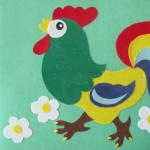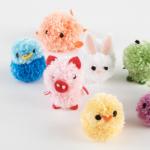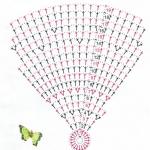Presentation by a teacher on patriotic education. Presentation on the topic "patriotic education in dow"
Description of the presentation by individual slides:
1 slide
Slide description:
2 slide

Slide description:
3 slide

Slide description:
4 slide

Slide description:
Childhood is an everyday discovery of the world and therefore we must make sure that it becomes, first of all, the knowledge of man and the Fatherland, their beauty and greatness. V. A. Sukhomlinsky You may not be a poet, but you must be a citizen. N. A. Nekrasov A future citizen is growing in your family and under your leadership. Everything that happens in the country should come to children through your soul and your thoughts. A. S. Makarenko
5 slide

Slide description:
6 slide

Slide description:
Slide 7

Slide description:
What do we call Motherland? The house where you and I grow up And the birches along the road along which we walk What do we call Motherland? The sun is in the blue sky. And fragrant, golden Bread for festive table What do we call Motherland? The land where you and I live. V. Stepanov Native land
8 slide

Slide description:
Slide 9

Slide description:
10 slide

Slide description:
Family is part of the Motherland In the family circle, you and I are growing up. The foundation is the parental home. All your roots are in the family circle, And you enter life from the family. In the family circle we create life, the basis of the foundation is the parental home. What could be more valuable than family? The father's house welcomes me with warmth. They always wait for you here with love and see you off on your journey with kindness!
11 slide

Slide description:
Scheme of cooperation between preschool educational institutions and parents on the moral and patriotic education of children in preschool educational institutions Excursions Parent meetings Replenishment of exhibitions on this topic Joint holidays Folklore holidays Events of memorable calendar dates (Republic Day, etc.) Defender of the Fatherland Day International Women's Day Victory Day Joint productive activities with children
12 slide

Slide description:
Slide 13

Slide description:
Kindergarten is a second home “We all love kindergarten. It’s full of children. One, two, three, four, five... It’s a pity that we can’t count them all. Maybe there are a hundred of them, maybe two hundred, It’s good when we’re together.” “The children live in the kindergarten, They play and sing here, They make friends here, They go for walks together. The kindergarten is our second home. How warm and cozy it is! You love it, children, the kindest home in the world!”
14 slide

Slide description:
On April 14, 2015, at preschool educational institution No. 5 “The Little Humpbacked Horse” in Shakhtersk, a teachers’ meeting was held on the topic: “The use of theatrical, musical, productive activity in the moral and patriotic education of preschool children." The objectives of the teachers’ council were: systematization of teachers’ knowledge about the directions of the organization educational activities with kids preschool age on issues of patriotic education; expanding the knowledge of educators about modern requirements for the formation in children of patriotic attitudes and feelings towards their family, city, nature, culture based on the historical and natural features of their native land, nurturing self-esteem as a representative of their people, respect for the past, present and future of their native land, tolerant attitude towards representatives of other nationalities.
15 slide

Slide description:
During the teachers' meeting, the relevance, forms, and system of work on patriotic education were discussed, both with children and parents. A variety of methodological techniques selected by methodologist Ya.S. Dmitry, helped teachers improve their methodological and professional skills. Musical director M. S. Chernegil and teacher S. V. Mikhaleva spoke about the indispensability of using music, theatrical performance, productive activity and shared their experience of working on this topic. The reading competition “My beloved Shakhtersk, my homeland Donbass” surprised me with the talent and variety of the selected material. Creative group kindergarten The project “In the Family Circle” was presented, which is aimed at correcting child-parent relationships within the framework of a component of the system of work on patriotic education. The training games “I won’t tell, but I’ll show,” “Back to the Past,” and “My Homeland” revealed everyone’s creative potential. The teachers' council was full of presentations from the work experience of each age group. Psychological pauses, proposed by psychologist Ya. N. Korzh, set teachers up for positive and productive work. Exhibition on the eve of the 70th anniversary Great Victory- collages, crafts, drawings, joint work between children and parents once again focused on the importance of instilling patriotism and citizenship in children, respect for the past and pride in it.
16 slide

Slide description:
May 1st holiday in kindergarten The clouds cleared, the spring rain stopped dripping, and the sun smiled on the first days of May, when preschool institution No. 5 “The Little Humpbacked Horse” took place on May 1st. WITH good mood The children sang, danced and recited poems with joyful emotions. Girls gave holiday wishes to children, guests and passers-by junior group in the form of colorful nesting dolls, lyrical dance with arcs performed by girls senior group. A flash mob performed in a group by children of senior preschool age made their hearts beat faster to the beat of a perky melody. The children took an active part in games and relay races - where only friendship and a sense of camaraderie won.
Slide 17

Slide description:
So may we always have a peaceful sky above our heads, a bright and radiant sun, and may the reverent words: peace, work, friendship forever warm our hearts...
18 slide

Slide description:
Slide 19

Slide description:
February 23 – “Defender of the Fatherland Day” On February 20, an event dedicated to the celebration of February 23 – “Defender of the Fatherland Day” was held at preschool educational institution No. 5 “Humpbacked Horse”. Fathers, grandfathers, older brothers of our students and special guests - militia fighters - were invited to our holiday. Children and adults prepared carefully and with trepidation for this event: they learned songs and dances, made postcards, drew congratulations, and festively decorated the hall. The children of the eldest and speech therapy groups. The audience warmly greeted the participants with applause. The opening of the holiday was a touching song about peace, blue sky and happy childhood performed by children and adults.
20 slide

Slide description:
Boys and girls not only recited poems with expression about what they want to become in the future, but also surprised with their dancing abilities in the “Apple” dance. Together with the guest cadets, the guys learned to march, change formations, and solve riddles. The holiday was full of relay races, competitions, and games for both children and guests. No one was left without attention or participation. With great passion, the dads and boys were sharp shooters, the girls were nimble assistants. On this day, even dreams came true: everyone could instantly become a general by taking part in the “Carry the Epaulets” relay race, an experienced mine detector by becoming a participant in the “Pass the Minefield” game, and a cipher coder in the “Do as I do” competition. The girls amused the guests with comic ditties, beautiful proverbs and sayings about family, friendship, hometown and edge. The relaxed and friendly atmosphere of the holiday evoked a joyful mood in children and adults, a lot of positive emotions and a sense of pride in brave, courageous boys and men. And in gratitude for the wonderful holiday, the militia fighters gave the children of the garden delicious treats. Everyone was very pleased!
21 slides

Slide description:
“Without a master, the earth is an orphan” On April 22, 2015, teachers of preschool educational institution No. 5 “The Little Humpbacked Horse” held a bright, memorable event dedicated to the celebration World Day Earth. The purpose of the event: to deepen children's environmental knowledge, develop a humane attitude towards nature, and a sense of responsibility for all life on Earth. Children from the senior and speech therapy groups took part in environmental competitions, played games of appropriate content, recited poems about caring for nature, guessed riddles and, of course, danced. Throughout the holiday, the children “saved” the planet from pollution and “increased” its natural resources.
22 slide

Slide description:
Public relations In April 2015 Preschool educational institution No. 5 "Konek-Gorbunok" in Shakhtersk for the purpose of active socialization of children of senior preschool age and implementation of activities in accordance with thematic plan In preparation for the celebration of the 70th anniversary of Victory in the Second World War, the company is actively cooperating with the public. In order to develop the social and communicative competence of children, on April 23, 2015, children with teachers N.A. Voitenkova, O.L. Lebedeva and psychologist Ya.N. Korzh visited the Miners’ Film College. The guys watched cartoons, demonstrated their intellectual abilities in games, recited poems on military topics, and then shared their impressions. On April 24, 2015, children from the senior and speech therapy groups went on an excursion to the Palace of Culture named after. Lenin. They visited 3 museums: Historical, Military Glory and History of Shakhtersk. The guys not only listened interesting story guide, but they themselves practically took part: “churning” butter, spinning, trying on military uniform, looked at instruments for measuring radioactivity, a mini-projection of coal mining, held a jackhammer in our hands and much more interesting things.
Slide 23

Slide description:
On April 29, 2015, under the leadership of methodologist Ya. S. Dmitrik, with the active participation of educators, the children visited their senior comrades in secondary school No. 18 as part of the city action “St. George’s Ribbon” and instilling patriotic feelings, respect for the memory of the defenders of our Motherland and everyone who survived during these difficult years. Classroom teacher E. Yu. Tsyba and class 1A warmly welcomed the kids and together opened the exhibition “Victory Day through the eyes of children.” The children and teachers of the kindergarten recited poems, showed drawings on this topic, and looked at everything together collaborations children with parents - military equipment. The first-graders thanked us for the visit and the interesting exhibits.
24 slide

Slide description:
Happy world of childhood “A caring gardener strengthens the root, on the power of which the life of the plant depends for decades. Likewise, a teacher should take care of instilling in his children a sense of boundless love for the Motherland" V. Sukhomlinsky " Magic power love for the child plus a touch of creativity plus the joy of communication plus excellent knowledge preschool pedagogy and child psychology" is the formula for success of teachers of preschool educational institution No. 5 "The Little Humpbacked Horse". It was these qualities, despite all the events of last summer, that in the fall opened the doors to the world of childhood, joy, warmth and comfort for all the children. We try to make every day bright and memorable for the child. Every morning in kindergarten is a morning of joyful meetings, new discoveries, hobbies, which distracts from the negativity of what is happening around, from the difficult everyday life of the Native Land. - When I grow up, I will be a wizard! - said a child one day while walking. Well, such a dream is not uncommon. After all, then everything becomes fun and interesting, difficulties become surmountable, and the sky becomes bright and peaceful. Kindergarten teachers help the child awaken the wizard in himself and joyfully live through his childhood. The priority areas of our institution’s work are more relevant than ever: development creative potential and creativity of the child, strengthening physical and emotional health, raising active children civic position and feelings of patriotism. Preschool childhood- the most important period in the formation of a person’s personality, when the foundations of civic qualities are laid, love for one’s native nature is instilled, the ability to feel its beauty, affection for family, home, and small Motherland. These tasks are solved by teachers not only in the main activities - classes, walks, games, work, but also in interaction with parents and the public. After all, family and preschool are the two main institutions for the socialization of children. Exciting travels to the “Land of Health”, sports entertainment"Defenders of the Motherland", " Friendly family», music festivals“For beloved mothers”, “Musical drops”, as well as events with the participation of clowns, fairy-tale heroes, performed by our teachers, immerse children in the world of fabulous events and accomplishments. Parents and the public are active participants in most events. On the eve of the celebration of the 70th anniversary of Victory Day in the Second World War, mothers and fathers, together with their children, prepared an exhibition of crafts, collages, photos on this topic, and participate in the design and preparation of the holiday. After all, the spirit that reigns in kindergarten and family has a great influence in shaping the child’s inner world. I would like to express my gratitude to the kindergarten staff, parents, secondary school No. 18, Palace of Culture named after. “Lenin”, Miner’s Film Technical School for active participation in the activities of the kindergarten and creating a peaceful childhood for our kids. The teachers of our kindergarten believe that the world of childhood exists and will exist, no matter what. And the confirmation is the happy smiles of our children!
All-Russian competition of pedagogical excellence “Methodological piggy bank of a kindergarten teacher”
I organize my work with children on the basis thematic planning. This allows you to see different aspects of phenomena:
- social,
- moral and ethical,
- artistic and aesthetic.
The entire complex of educational tasks is aimed at achieving the main goal - the formation of a new harmoniously developed person. Although he himself is small, he has a high soul, which means his real height is higher than the most distant stars. And so began the writing of our book.
I think it is important to introduce children to the history and meaning of names, since a name is the treasure of every person.
I use it when working with children various forms works such as:
- A card index of the meanings of the names of children and parents has been compiled.
- The children's understanding of the Motherland is closely connected with specific ideas about what is close and dear to them. It begins in a child with his relationship to his family, to the closest people - mother, father, grandmother, grandfather.
- On the second page of our book, the guys and I get acquainted with the history of each family and traditions.
- Make up family tree and family coat of arms, prepare presentations, stories about their family, family photo albums with children's stories.
- In the group we organize “Family Assemblies” (Leisure or in modern “family assembly”: - development of a culture of mutual understanding).
- The “Day of Caring Parents” has become traditional. Thus, in an informal setting, parents have the opportunity to share information about ways of interacting with a child in the family and get acquainted with the experience of raising other families.
I try to make the kindergarten become a second home for children, so that the life of the children there is interesting, rich, and memorable. So that every child loves their kindergarten and group. Therefore, the name of the group was chosen together with the children and parents. business card and the group's motto.
Starting from the 1st junior group, we create a portfolio of children.
My work would be unproductive without the help of my parents. The most important thing is to involve parents in a single educational space. Only a common goal and common tasks will give a positive result. Parents are active participants in entertainment, holidays, promotions,
“Day of Good Deeds” - what a joy it is to see the happy eyes of children when they work, play, create, together with their parents.
And on the “Weekend Pages” they share their impressions of the weekend.
I try to develop in children a sense of attachment to home, family, kindergarten, loved ones and close people, so that the kindergarten truly becomes a second home.
We are growing up, we live in our hometown.
Muravlenko is our city. By instilling in children a love for their city and district, I bring them to the understanding that our city is a part of the Motherland, since all places, large and small, have much in common:
- people of different nationalities live everywhere,
- they work everywhere
- respect traditions
- protect and preserve nature,
- celebrate holidays.
My country, what's your name? In answering this question, I try to convey to children not just information, but truths that should touch their feelings.
The group hosts reading competitions, meetings with interesting people, veterans of labor, the Great Patriotic War, parents and their children bring from different parts of our country a piece of their small Motherland - souvenirs or symbols, and we spend joint evenings in the group with stories about our Motherland.
I carry out all the work in this area through the implementation of projects; this is one of the promising methods that is aimed at developing creative abilities, creating interest and need for active work in preschoolers. Based on a personality-oriented approach to training and education, it develops cognitive interest in various areas of knowledge and develops cooperation skills.
In your group, based on analysis, monitoring and individual work with children and their parents, I identified a problem: children have superficial knowledge about their native country, their region, region, about the Motherland as a whole; Parents do not pay due attention to the problem of patriotic education of preschoolers. Therefore, I consider the main direction in working with children on patriotic education to be the education of patriotism in preschoolers as the most important spiritual, moral and social value through the cultivation of love for their hometown, region, and country.
In recent years go by rethinking the essence of patriotic education: the idea of \u200b\u200beducation of patriotism and citizenship, acquiring increasing social significance, becomes a task of national importance. Cultivating patriotic feelings in preschool children is one of the tasks moral education, which includes nurturing love for loved ones, for kindergarten, for one’s home, for one’s home street, for one’s hometown and one’s home country. The formation in preschoolers of love for the Motherland from an early period is the stage of their accumulation of social experience of life in the conditions of their small homeland, the assimilation of accepted norms of behavior, relationships, and familiarization with the world of their native culture. Therefore, patriotic education from preschool age is the only sure way of successful early socialization of the individual, the formation of a stable connection between generations and ensuring a person’s connection with his native roots, his love for the fatherland, which begins with a conscious and responsible attitude towards his small homeland.


To establish interaction between families and preschool educational institutions on the formation of moral and patriotic feelings in children; To promote in the child the development of love and affection for the family, home, kindergarten, home street, city; To promote the formation of a caring attitude towards native nature and all living things; Promote the development of tolerance, respect and sympathy for other people.


My work is based on the hypothesis that the process of moral and patriotic education of preschool children will be more effective if game, verbal, visual, excursion and innovative methods are used educational work.

When selecting methods for implementing the set goals and objectives, I studied the following methodological scientific literature: “ Patriotic education preschoolers" N.V. Aleshina, "Patriotic education of children 4 - 6 years old" N.G. Komratova, "Where does the Motherland begin?" L. A. Kondrykinskaya, “My Country” by V. I. Natarova, “Moral and Patriotic Education of Preschool Children” by N. D. Makhanev

Methodological support is reflected in photographs, albums and special literature (fiction and reference and information). All this material enriches children’s understanding of their small Motherland. There are maps, booklets, diagrams, images of symbols of Russia, the Altai Territory, and the city of Barnaul.


The leading pedagogical idea is to accompany preschool children on the path to the development of citizenship and patriotism, the formation and development of competencies necessary for the successful socialization of a growing individual in the conditions of a small homeland (hometown).


My family. My family members. Our first and last names. Parents' house. My dad is the defender of the Fatherland. My mom. Parents' professions. We are the helpers of our kindergarten. Our group. Hometown. My native land. Nature of the region. Cultural heritage. Historical monuments. Russia is my homeland. Moscow is capital of Russia. Coat of arms, flag, anthem. To live is to serve the Motherland. Our grandfathers wear medals.

The feeling of love for the homeland is acquired independently and experienced individually. The task of adults, both teachers and parents, is to awaken this feeling in the child, to awaken it, and not to impose it. And for this it is necessary to adhere to the following principles when organizing the educational process: The principle of activity and independence The principle of differentiation The principle of historicism The principle of visibility The principle of humanization The principle of individual-personal orientation The principle of integrativeness The principle of phasing The principle of communication The principle of success The principle of cognitive expressiveness Positive centrism

Intensive changes in the surrounding life, the active penetration of scientific and technological progress into all its spheres dictate to the teacher the need to choose more effective means education and training require qualitatively new approaches, the use of new technologies in educational educational process. In my work on the topic, along with traditional ones, I use innovative forms of work:




Creation of a subject-developing group environment; -Development of a methodological piggy bank; -Development and implementation of long-term planning of work with children; -Development and implementation of a plan for successive relations with social institutions (Children’s Library 22, MBOU CS “Barnaul Cadet Corps” 90, Puppet Theater “Skazka”, Russian Chamber Orchestra of the city of Barnaul, etc.)

Conducting excursions with the participation of parents and children; -“Open Days” -Organization of non-traditional forms of work with parents (Club “Young Parents”, “ round table") -Involving parents and children in project activities on this topic; -Participation of children and parents in competitive activities at various levels; -Holding holidays and joint leisure activities.

Use of ICT technologies; -Conducting excursions; -Visit social institutions within the framework of successive ties; -Organization of exhibitions, concerts, competitions, leisure activities. -Implementation of direct educational activities in accordance with Federal State Educational Standards.



Conducting excursions with the participation of parents; -Conversations – consultations; - “Open Days” - Organization of non-traditional forms of work with parents (club “Young Parents”, “round table”) - Involving parents in project activities on the topic; -Participation of parents in competitive activities in preschool educational institutions; -Holding holidays and joint leisure activities; -Questioning -Visually - information material.


I share my work experience within preschool educational institutions, at the city, interregional and all-Russian levels: -Teaching councils; -Consultations; -Open demonstration events for young teachers; - Demonstration events for students of BGPC 1; -Participation in competitive activities at different levels.

Systematic and systematic work to instill patriotic feelings in children contributed to enriching the knowledge of preschoolers. The children learned a lot of new things about our region, about its sights, about the customs and traditions of the Altai region and Russia. Replenishing children's active and passive vocabulary contributed to the formation of children's visual and figurative thinking. In play and work, friendly relationships between children have improved, and the system of relations between children and parent groups has been enriched. I hope that the knowledge gained in kindergarten will be useful to the children in their future lives.

This work experience can be extended among preschool educational institutions. Available methodological support: -Forward planning working with children; -Methodological piggy bank: notes, visual and illustrative material, card indexes, didactic games, methodological manuals, multimedia presentations, literature.

Difficulties in implementing work on moral and patriotic education of preschool children arise from parents, since due to modern workload they do not always have the opportunity to take part in the events that I conduct at the preschool institution. As a result, parents cannot fully apply their experience and knowledge in the process of moral and patriotic education of their children.

1. Patriotic education in preschool educational institutions./Compiled by E.Yu. Aleksandrov's system and others - Volgograd: ed. “Teacher”, Aleshina N.V. Familiarization of preschoolers with the environment and social reality. – M.: TsGL, Aleshina N.V. Patriotic education of preschool children: TsGL, Aleshina N.V. Introducing preschoolers to their hometown and country (patriotic education).-M.: UTs “Perspective”, How to teach children to love the Motherland: A guide for educators and teachers / Compiled by: Antonov Yu.E., Levina L.V., Rozova O.V., Shcherbakova I.A. – M.: ARKTI, My country. Renaissance national culture and education of moral and patriotic feelings. Practical guide for educators and methodologists of preschool educational institutions // author. comp. Natarova V.I. and others - Voronezh: TC "Teacher", 2005.

7. Where does the Motherland begin? Experience in patriotic education in preschool educational institutions / ed. L.A. Kondrykinskaya. - M.: Sphere shopping center, System of patriotic education in preschool educational institutions: planning, pedagogical projects, development thematic classes and event scenarios / author - comp. Alexandrova E.Yu. and others - Volgograd: Teacher, 2007.

Slide 1
Development of social and personal qualities of preschool children through patriotic education MBDOU kindergarten No. 45 “Yagodka” of a general developmental type with priority implementation of activities in the social and personal direction of children’s development “Where does the Motherland begin?” The work was completed by teacher Ivanova E.M. website
Slide 2
Patriotism - love for the Motherland, devotion to it, responsibility and pride for it, the desire to work for its benefit, to protect and increase its wealth - begins to form already in preschool age. You cannot be a patriot without feeling a personal connection with your Motherland, without knowing how our ancestors, our fathers and grandfathers loved and took care of it. Already in kindergarten, as a result of long-term, systematic, purposeful educational work, elements of citizenship and patriotism can be formed in children. A preschool child's love for the Motherland begins with love for his family, his home, kindergarten, and city. After all, vivid impressions of the native nature, the history of the native land, received in childhood, remain in a person’s memory for a lifetime.
Slide 3
Relevance of the problem The problem of patriotic education of the younger generation is one of the most important today. Children, starting from preschool age, suffer from a lack of knowledge about their hometown, country, and the peculiarities of Russian traditions. They treat close people and group mates with indifference. They lack empathy and compassion for the grief of others. The system of working with parents on the issue of moral and patriotic education has not been sufficiently developed.
Slide 4
Tasks that solve these problems: To increase the educational, professional, theoretical and practical knowledge of teachers on the problem of moral and patriotic education of preschool children. Systematize the knowledge and skills of teachers and children on this issue. To develop in a child of senior preschool age social and personal qualities such as compassion, empathy, self-esteem and awareness of himself as part of the world around him. Help parents develop and maintain children's curiosity in the process of joint activities.
Slide 5
Forms of work with children on civic-patriotic education: Targeted walks to monuments of military glory, along streets named after heroes of the Great Patriotic War; Excursions to memorable places. The content of such excursions is: observation of ritual moments (laying flowers at the monument, a minute of silence, meeting with war participants). The same excursion is carried out with the participation of parents. They are offered a “Weekend Route” with detailed description of the site being visited and recommendations on how to familiarize the child with the monument in an accessible way. Reading fiction, corresponding to the age category of children - about the defenders of their native land, the Fatherland. Parents are given recommendations to visit district libraries with their children. Using audio and video equipment to listen to music about the Motherland, showing children films about the exploits of Russian people.
Slide 6
Examination of illustrations, paintings, reproductions and newspaper clippings containing historical facts and events from the surrounding life. Meetings with participants of the Great Patriotic War and labor veterans, participation in holidays: “City Day”, “Mother’s Day”, “Father’s Day”, “Victory Day”, etc. Preparation of thematic exhibitions dedicated to memorable dates, making souvenirs for war and labor veterans. Creation of mini-museums of military and labor glory, defenders of the fatherland, and a theater of Russian Costume. Carrying out campaigns: “Feed the birds in winter”, “Green patrol”, “Greening the territory of the kindergarten”. Equipping the subject-developmental environment for a kindergarten group: making attributes for the games “Border Guards”, “Sailors”, “Cosmonauts”, etc. production of paraphernalia of state symbols of Russia and the city; design of albums: “Sights of our city”, “My family”, “It’s good in our garden”, etc. Creation of the newspaper: “My sports family”, “In the morning the sun rises and calls me to kindergarten.”
Slide 7
Success in patriotic education can be achieved only if the teacher himself knows and loves the history of his country, his people. He must be able to select the knowledge that will be available to preschool children, something that can cause feelings of delight and pride in children. But no amount of knowledge will give a positive result if the teacher himself does not admire his country, his city. “In education, everything should be based on the personality of the educator, because educational power flows only from the living source of the human personality. No statutes or programs, no artificial organism of the institution, no matter how cunningly invented, can replace the individual in the work of an educator.” K. D. Ushinsky.
Slide 8
Acquaintance of preschoolers with their hometown and its attractions. Topics that are brought to class are more complex and require explanation and interpretation. The work takes place outside of classes - targeted walks, excursions, since it is impossible to know and love the city only from illustrations.
Slide 9
Acquaintance of preschoolers with the heroes of the Great Patriotic War, with the monuments of the city and region. Work takes place outside of class - target walk to monuments of military glory.
Slide 10
Slide 11
Introducing preschoolers to the history of Russia. "Visiting Grandfather Frost." “The carol has arrived - open the gate!” Work on patriotic education takes place in classes, during entertainment, and at matinees. "Defender of the Fatherland Day".
From work experience preschool teacher“Patriotic education of preschool children”
Description of work: This material will be useful for children of middle, older and preparatory age.This material is constantly used in the educational process to instill in children love for their Motherland.
***
Patriotism- this is both devotion to one’s Fatherland and the desire to do everything possible to preserve the cultural identity of each people.
The purpose of our preschool institution is is the improvement of patriotic education, the development of the child’s personal culture as the basis of his love for the Motherland.
The urgency of the problem lies in the fact that modern children know little about their hometown, country, the peculiarities of folk traditions, are often indifferent to close people, including group mates, and rarely sympathize with the grief of others.
Working with parents on the issue of moral and patriotic education in the family is clearly insufficient.
Tasks for patriotic education:
nurturing in a child love and affection for his family, home, kindergarten, street, city;
formation of a caring attitude towards nature and all living things;
instilling respect for work;
developing interest in traditions and crafts;
formation of basic knowledge about human rights;
expanding ideas about Donbass;
introducing children to the symbols of the Republic (coat of arms, flag, anthem);
Developing a sense of responsibility and pride for the achievements of the Republic;
the formation of tolerance, a sense of respect for other peoples and their traditions.
Forms and methods of patriotic education of preschool children:
Children's drawings, reflecting a strong and pure feeling of love for their hometown and native nature, allow them to create expressive images, based on their own observations, and also make you think about your relationship to the world around you.
Conversations with children about the Republic, hometown.
Introducing children to the symbols of the Republic (flag, coat of arms, anthem).
Observations are one of the manifestations of patriotism - love of nature.
Reading fairy tales, listening to music, looking at illustrations.
Patriotic education is possible through any kind of folk tales. A fairy tale is a fertile and irreplaceable source of instilling love for the Motherland. A fairy tale is the spiritual wealth of a culture, by learning which a child comes to know his native people in his heart.
Labor education
Encouraging children to work, which is based on the desire to do something for others. The work of a preschooler is small and simple, but it is necessary for the formation of his personality.
Great place in patriotic education belongs to the game, since it is the main activity of the preschooler. Children play out everyday, work, and social scenes.
A special place in patriotic education is given to holidays. The holiday is the most ancient element of the culture of human society and an unconditional part of its life.
Love for the Motherland begins small - with love for your mother, with respect for the people around you, with your home, the street, with the ability to find around you what is worthy of admiration.
Our preschool organizes holidays, dedicated to the Day Victory.
Results:
The children's knowledge about their hometown, the Republic, has significantly expanded.
We got acquainted with the symbolism.
There was a desire to maintain order in the group and in the kindergarten area.
Got acquainted with oral folk art, nursery rhymes, holidays, with fairy tale heroes and their exploits.
Children's knowledge about professions has expanded.
A caring attitude towards nature has developed.
Children correctly evaluate their own actions and the actions of other people.
The vocabulary has expanded significantly.
The level of self-control and self-esteem has increased due to
acquired knowledge.
The activity of parents in preparing and holding joint events has increased.
Conclusion: The education of patriotic feelings is a set of universal human values: the concepts of love, friendship, goodness, truth merge with cognitive activity, ideas about modern reality, and an active and practical attitude towards the world.
Every person needs to know their native nature, history and culture of the people to which they belong, their place in the world around them.
We must be sure that our children and grandchildren will have a good time in the future, we must respect ourselves and teach others to do the same. If the integrity of this process is disrupted, the connection between generations will be destroyed. Nurturing patriotic feelings is and will be one of the main components of raising a young citizen.
In the future, we plan to continue working on this topic, since we believe that patriotism is the main feature of the people, it helps to cultivate a feeling of love for their native land and the world around them.
And it depends on us adults what our children will be like, what they will take away from childhood.
Presentation on the topic: Patriotic education of preschool children






